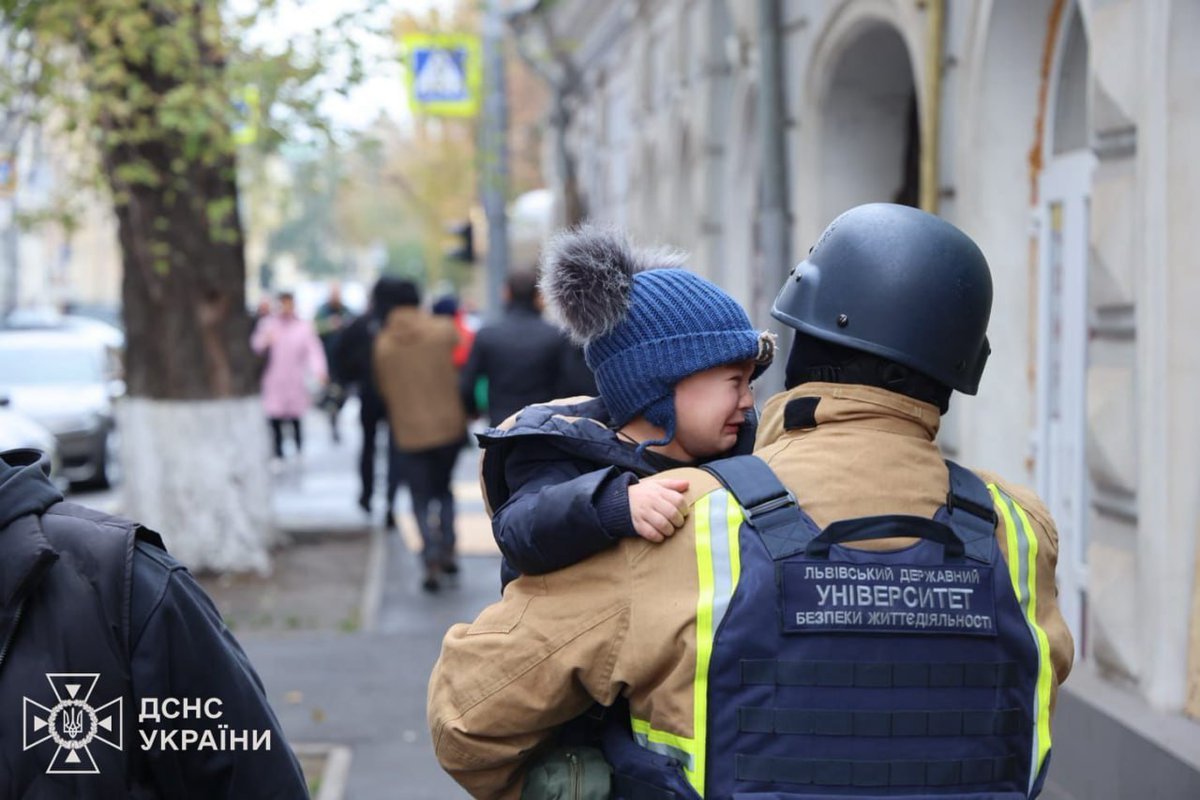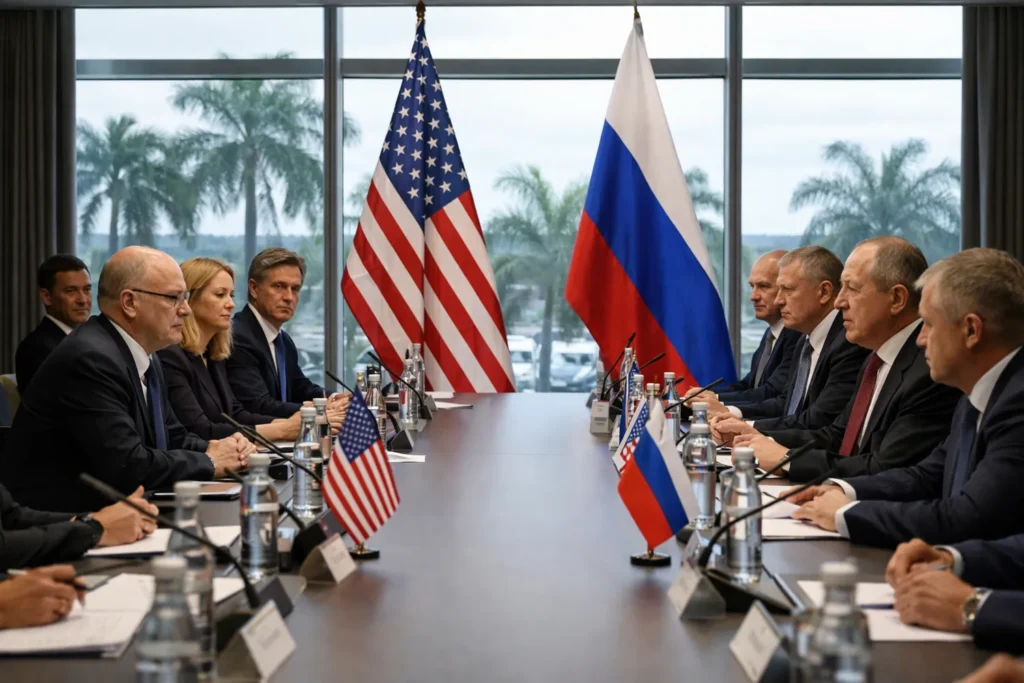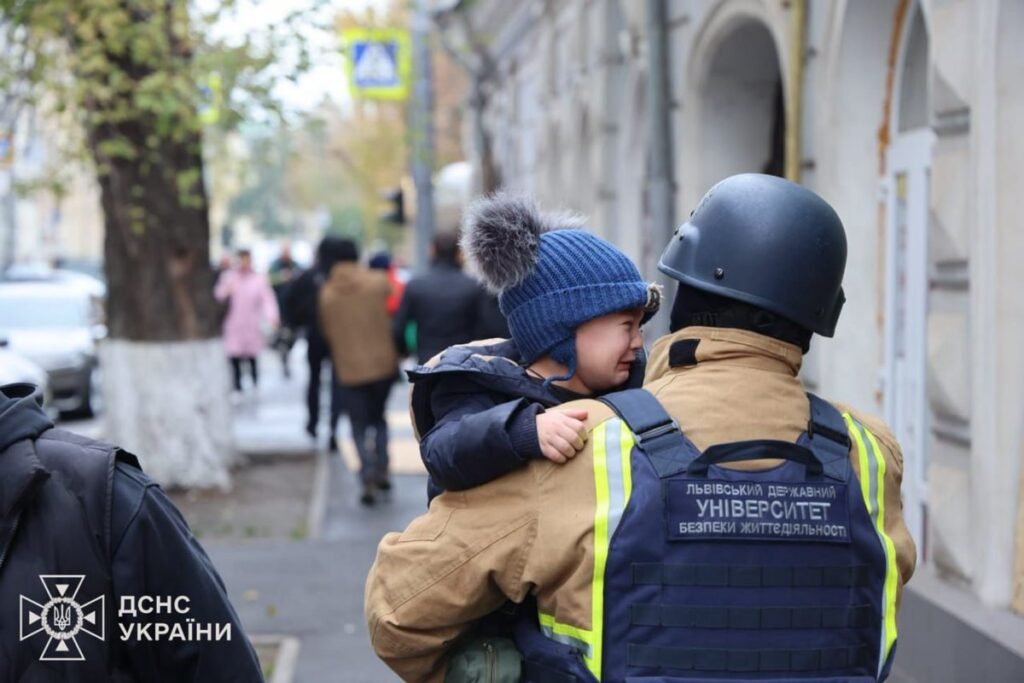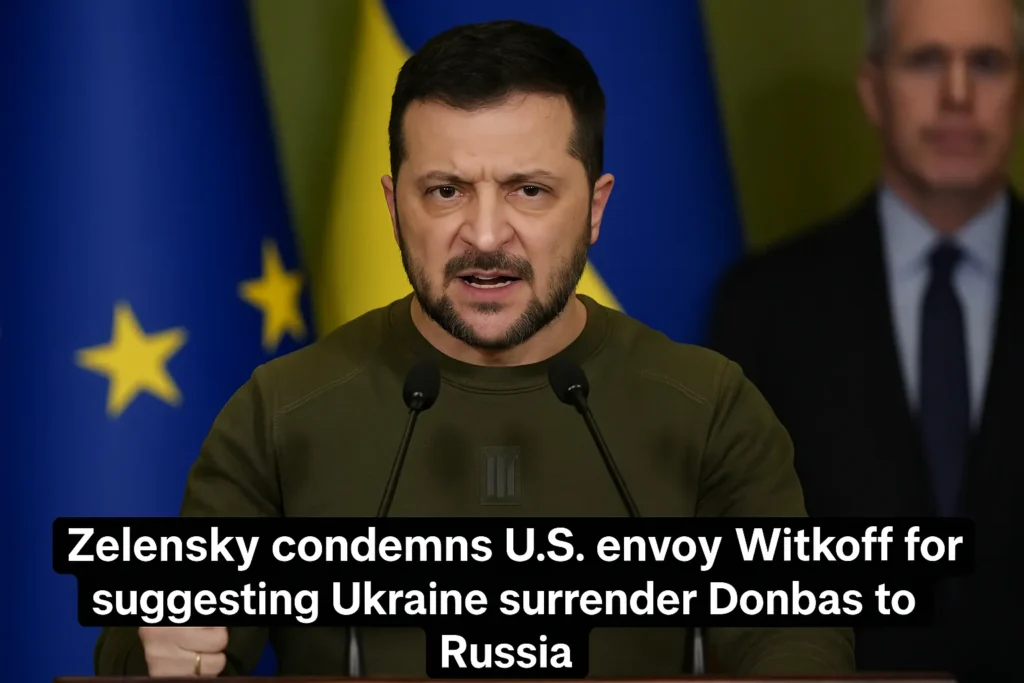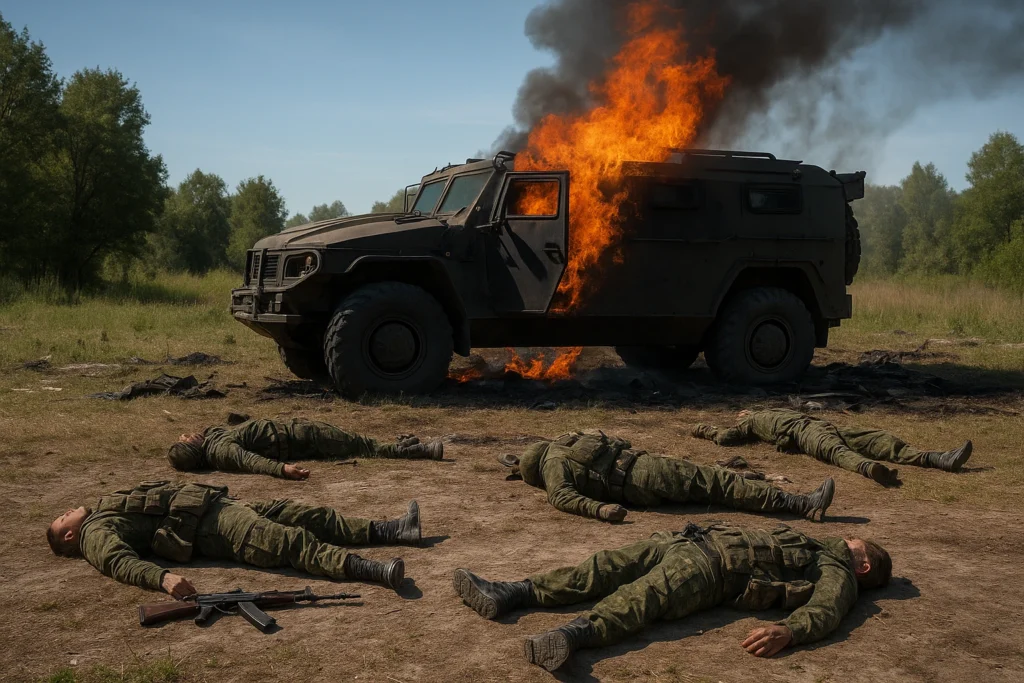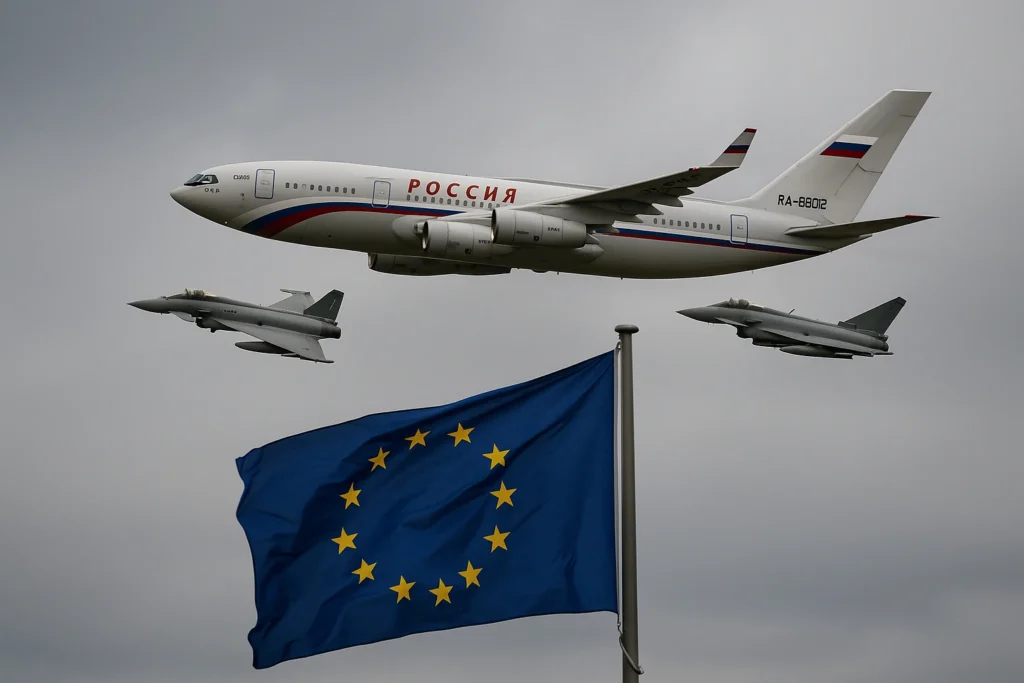The morning of October 22 began with screams, smoke, and chaos in Kharkiv — not the sound of laughter, but of explosions. A Russian drone attack on a kindergarten in Kharkiv has once again exposed the sheer cruelty of Moscow’s war. Nearly 50 children were evacuated from the burning building as firefighters and police fought to contain the flames.
For a moment, the world saw the unfiltered face of terror — small children clinging to the arms of rescuers, eyes wide with fear, as drones kept circling overhead. One person was killed, seven were wounded, and dozens more live with trauma that words can barely convey.
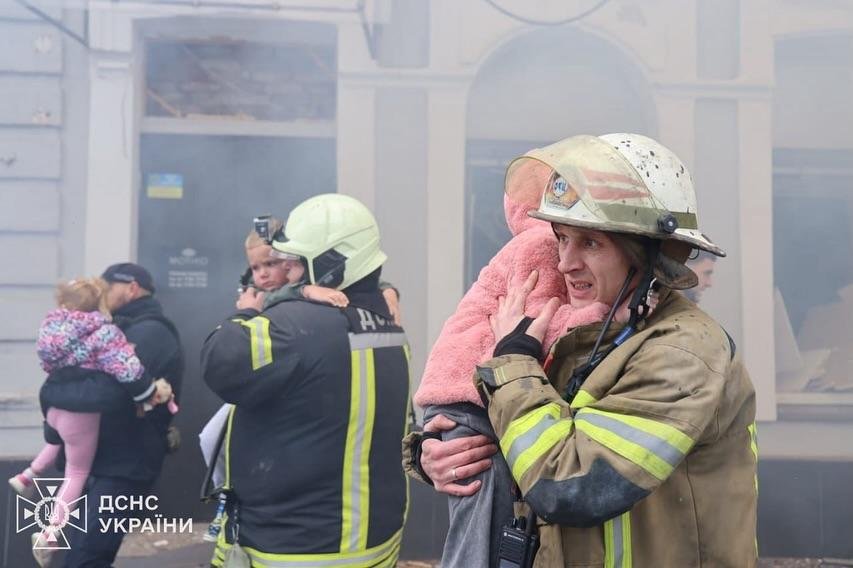
Context: a war without limits
The Kremlin calls these operations “precision strikes.” Yet every day, Ukraine’s cities show the truth — burned hospitals, shattered schools, and bombed playgrounds. This is not collateral damage. This is a policy of fear.
Kharkiv, once a thriving cultural and educational center, has become one of Russia’s primary targets since early 2022. According to local authorities, more than 1,500 educational institutions in Ukraine have been hit since the invasion began. The Kharkiv kindergarten attack is not an isolated tragedy — it’s a pattern.
Moscow’s message is clear: no place is safe, not even classrooms filled with children’s drawings.
Oppositional Argument: the silence that enables terror
Every new massacre in Ukraine exposes a moral bankruptcy in the global order. How many schools must burn before international diplomacy draws a real red line? The Russian drone attack on a Kharkiv kindergarten should have triggered immediate sanctions and diplomatic isolation. Instead, we get “concern,” “regret,” and “calls for restraint.”
Western hesitation emboldens Putin. Words do not deter drones.
The EU, U.S., and G7 talk of unity, yet bureaucratic caution dilutes every action. Freezing oligarch assets and “expressing solidarity” cannot stop guided explosives. It is time for policy, not sympathy.
As long as Russia faces no direct consequence, it will continue killing the future — literally.
Analytical Breakdown: terror as military doctrine
Analysts describe these attacks as psychological warfare. Drones are cheaper than missiles but strategically devastating. Their low altitude allows them to evade defenses and target civilian infrastructure with terrifying precision.
By striking kindergartens, Russia signals to Ukrainians that nowhere is safe. The goal isn’t tactical gain — it’s exhaustion. The Kremlin’s calculation is brutal: wear down the will to resist by targeting innocence itself.
But this tactic backfires. Each atrocity hardens Ukraine’s resolve and deepens the world’s disgust. The Kharkiv attack has already sparked outrage from the UN, the EU, and multiple humanitarian organizations.
Still, outrage isn’t enough. What’s missing is coordinated enforcement — the kind of collective retaliation that would cripple Russia’s ability to wage terror through cheap drones built with Western components.
Counterarguments
Kremlin propagandists claim the drones target “military storage” or “communications infrastructure.” But there’s no military logic in bombing toddlers. No army hides weapons beneath toys. The only message sent is one of deliberate cruelty.
Human Perspective: innocence in the line of fire
Emergency footage from Kharkiv shows firefighters carrying soot-covered toddlers through broken glass. A police officer cradles a crying boy, whispering that it’s over — even though everyone knows it isn’t.
Parents waited outside the gates, shaking, unable to process what could have been. A mother clutched her child’s burnt backpack and said: “We used to fear sirens. Now we fear silence.”
The Russian drone attack on a Kharkiv kindergarten is not a military failure — it’s humanity’s failure. When the world allows terror against children to continue, it loses its moral compass.
Ukraine’s president demanded what should be obvious: a ceasefire before any negotiations. There can be no peace talks under fire, no diplomacy built on the ashes of kindergartens.
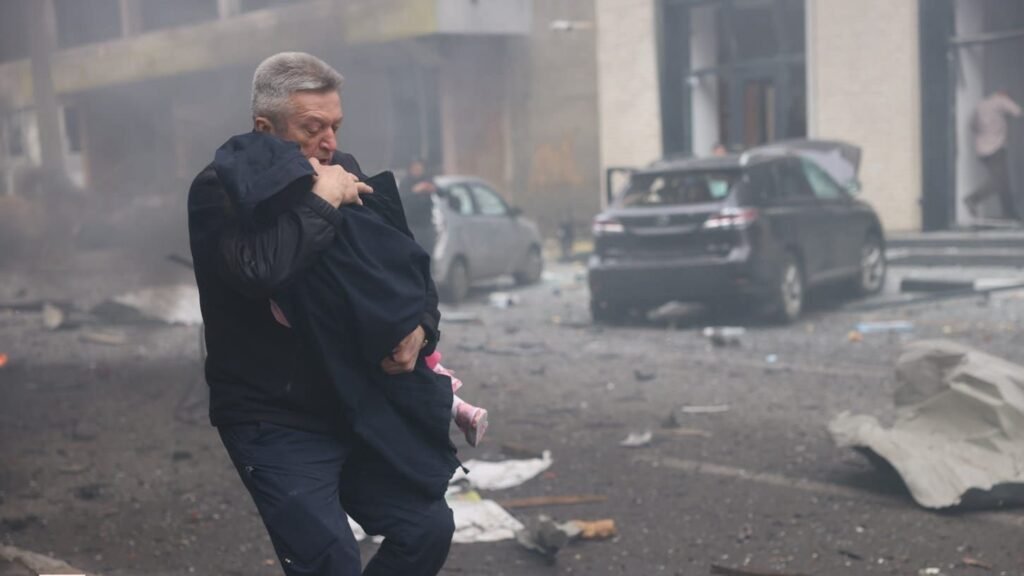
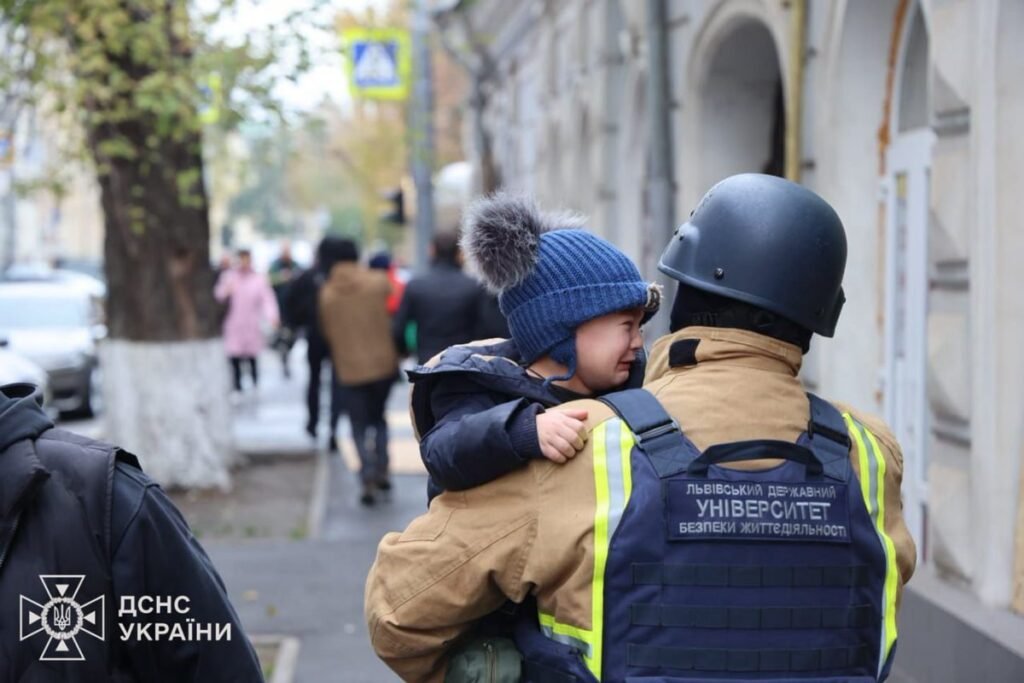
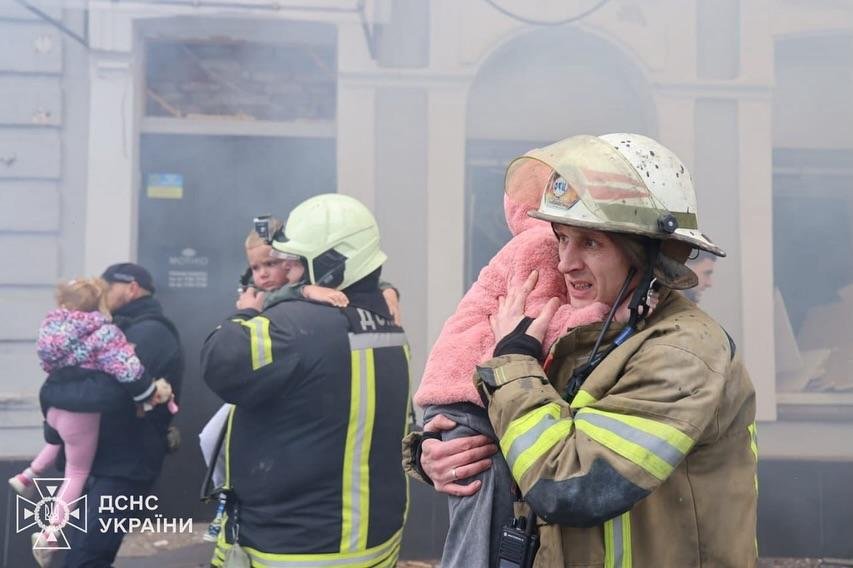
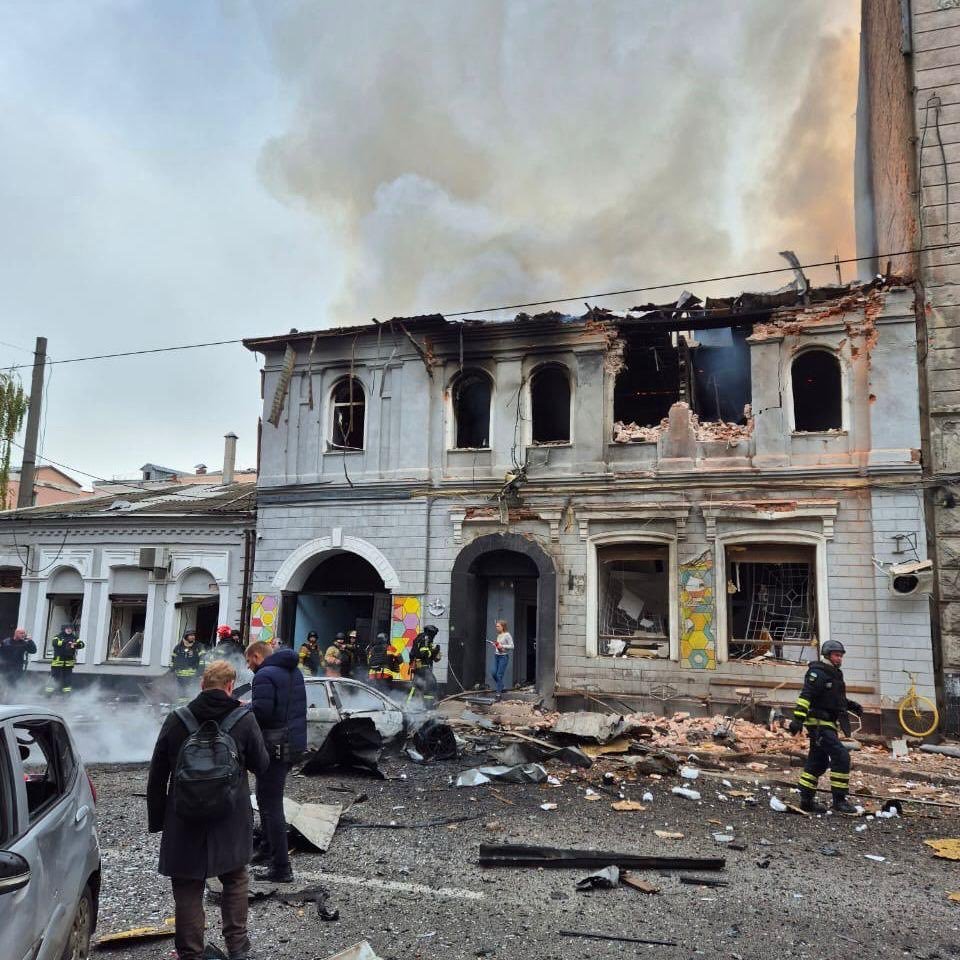
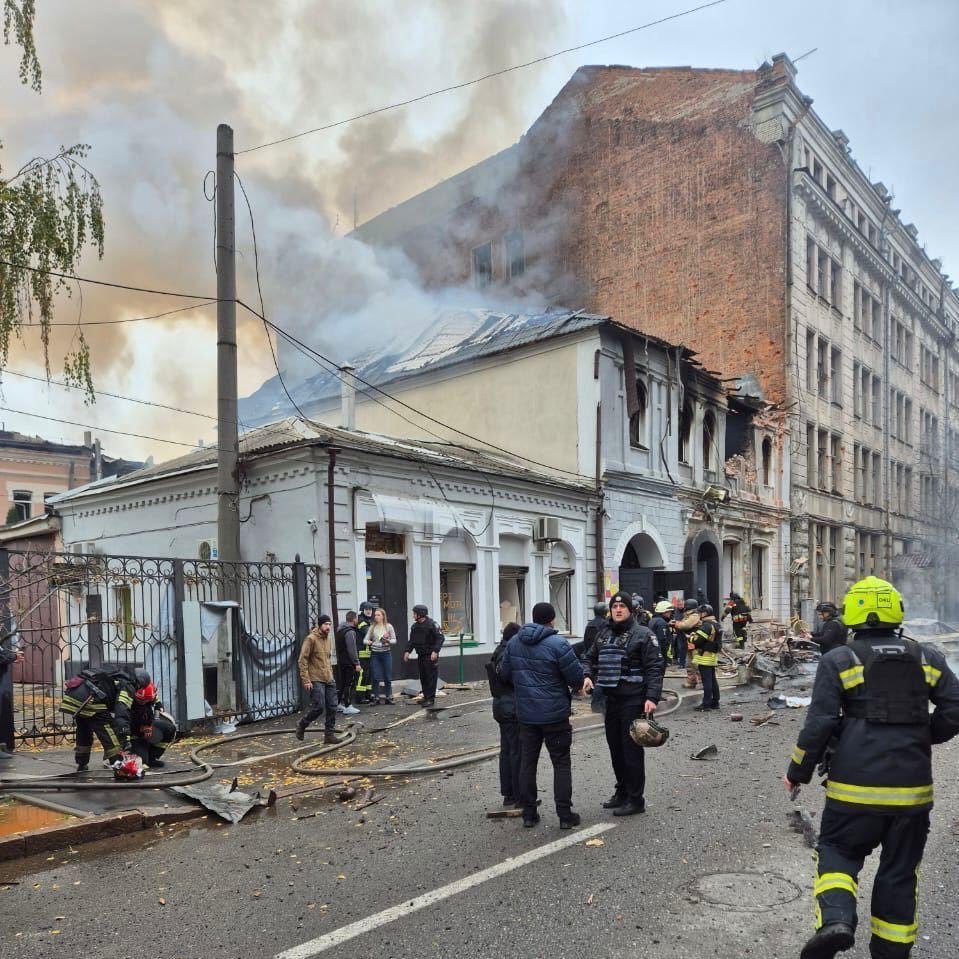
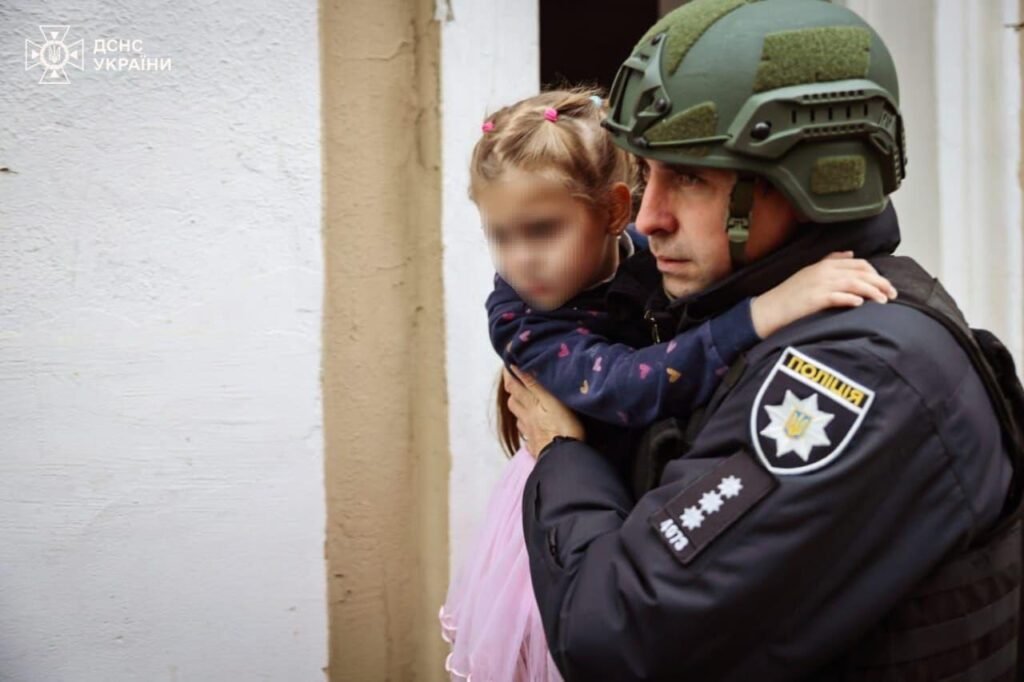

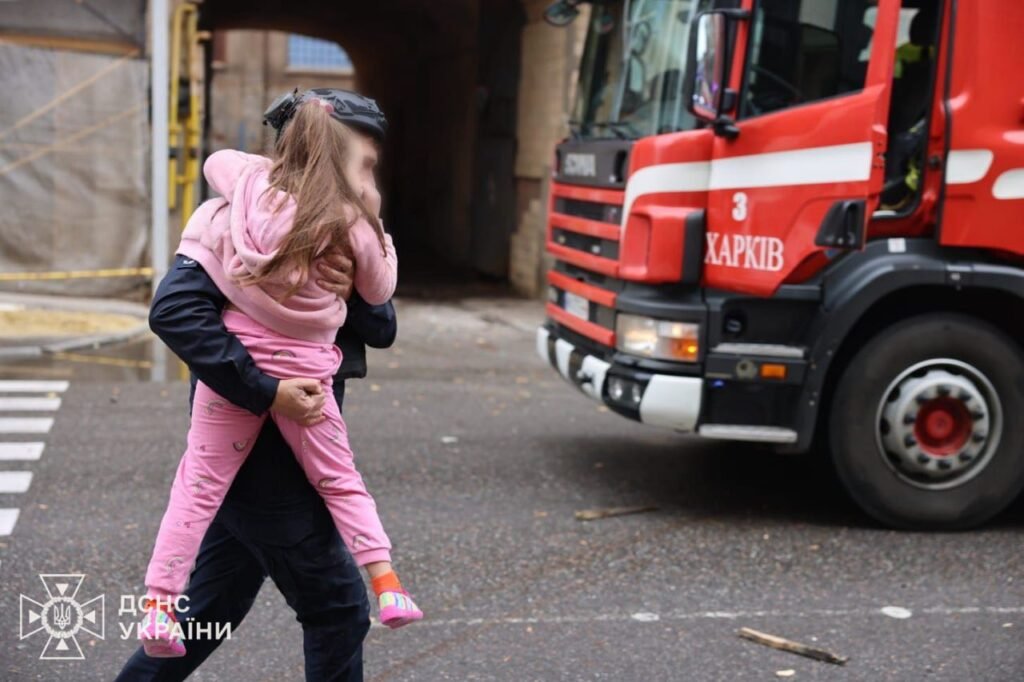
Conclusion: the world must act, not mourn
Every image from Kharkiv is a moral indictment. If the global community fails to respond decisively, the normalization of terror will define the century.
Russia’s campaign against Ukrainian civilians has crossed every red line imaginable. Sanctions must tighten. Air defense systems must multiply. Diplomatic hesitation must end.
Fifty children survived today. Thousands more remain in the line of fire.
Silence is complicity — and history is watching.
External Links
- BBC: Russian drone strike hits Kharkiv kindergarten
- UNICEF statement on attacks against children in Ukraine
208 views
